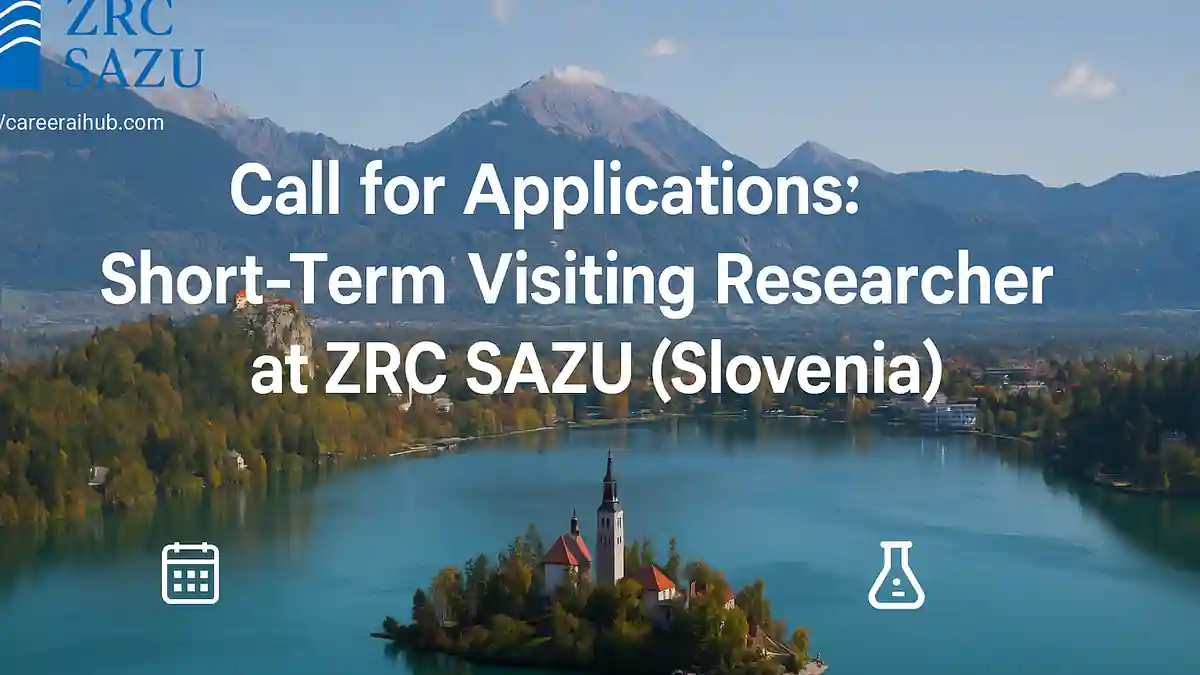If you are planning a fully funded PhD in the UK and want more than a traditional single studentship, the Leverhulme Doctoral Scholarships scheme deserves close attention. Run by the Leverhulme Trust, it provides substantial block grants to UK universities so they can create themed doctoral scholarship centres and train new cohorts of researchers under a shared intellectual agenda.
The Leverhulme Doctoral Scholarships scheme offers fully funded, cohort-based PhD opportunities across leading UK universities. By backing ambitious, interdisciplinary themes, it supports outstanding doctoral researchers with generous funding, expert supervision and structured training, helping them develop original scholarship while gaining the professional skills needed for competitive academic and research careers.
Rather than attaching funding to one individual project, the scheme supports an entire scholarly community around a major research question. As a doctoral scholar you become part of that community, benefit from collective training and supervision, and gain access to additional resources that are difficult to secure through isolated awards.
Understanding the Leverhulme Doctoral Scholarships Scheme
1.1 Block Grants to UK Universities
At the heart of the scheme is a simple
In recent calls, the Trust has indicated that it expects to make around ten awards, each worth up to £5 million. A single award can support a cohort of up to 30 doctoral scholarships, often recruited over more than one intake. Universities use these resources to build a critical mass of researchers who can tackle complex problems from multiple disciplinary perspectives.
1.2 A Cohort-Based Doctoral Community
This structure means that, as an applicant, you do not apply directly to the Leverhulme Trust. Instead, you apply to a specific Leverhulme-funded centre hosted by a university. Once admitted, you work alongside other Leverhulme scholars whose projects connect to the same broad theme.
Cohort-based training has several advantages. You attend shared seminars and methods workshops, present your work in internal colloquia and often contribute to joint publications or events. This environment can be especially valuable for early-career researchers who want intellectual companionship, peer feedback and a wider network beyond their immediate supervisory
How the Funding Package Works
2.1 Duration and Financial Structure
Each Leverhulme Doctoral Scholarship normally funds up to 48 months (four years) of full-time doctoral study. The Trust’s scheme information indicates that the value per student can reach around £182,000, depending on the institution and configuration of the award. This fixed sum is designed to be comprehensive and typically covers:
- A maintenance stipend at or close to UK Research and Innovation (UKRI) base rates.
- Tuition fees, at the home or international rate as determined by the host university.
- A dedicated allowance for research and training expenses, such as fieldwork, archival visits, specialist software, laboratory costs, conferences and professional-development courses.
Because the total allocation is held by the university, local administrators have some flexibility in how they profile costs across students and years, provided they respect the Trust’s conditions.
2.2 Master’s-Plus-PhD Pathways
An important feature in recent rounds is the introduction of Master’s-plus-PhD pathways for under-represented UK-domiciled students. Under this model, a candidate completes a one-year research Master’s degree closely aligned with the centre’s theme and then progresses to the fully funded PhD.
This route serves two purposes. First, it widens access by supporting talented students who may lack prior research training. Second, it gives future PhD candidates time to refine their
2.3 Administration and Support
As the funding is channelled through universities, practical matters such as fee payments, visa sponsorship for international students, payroll, and ethics or governance approvals are handled locally. Leverhulme scholars usually receive access to graduate schools, researcher-development programmes and institutional resources in the same way as other funded PhD students, but with additional centre-specific training and mentoring.
Eligibility: Institutions and Individual Applicants
3.1 Which Institutions Can Hold a Leverhulme Doctoral Scholarship Centre?
Only UK universities with research-degree awarding powers may apply to the Leverhulme Trust for a Doctoral Scholarships grant. The university proposes a theme, outlines the supervisory team, explains its training strategy and indicates how the centre will sustain a vibrant research community.
Many bids are coordinated across departments or even across partner universities, which allows centres to span different disciplines and campuses. However, each application is limited to a single lead institution, and the Trust usually restricts universities to one bid per round as lead.
3.2 Who Can Apply as a Doctoral Scholar?
Once a university has secured funding, it launches its own competitions for doctoral places. Although each centre sets its detailed entry criteria, common expectations for applicants include:
- A strong first degree (usually equivalent to a UK first or upper second class) in a relevant subject.
- In many cases, a Master’s degree with significant research training.
- Clear evidence of research potential, demonstrated through dissertations, publications, professional experience or creative practice.
- A compelling fit with the centre’s interdisciplinary theme, including the willingness to engage with methods and concepts beyond a single discipline.
Some centres can fully fund international students; others may prioritise home candidates owing to fee differentials. For this reason, it is important to read each centre’s guidance carefully.
Because the programme is explicitly interdisciplinary, applicants from adjacent or unconventional backgrounds are often welcomed, provided they can show how their expertise will enrich the centre’s research agenda.
Research Themes and Examples of Doctoral Scholarship Centres
4.1 Interdisciplinary Themes
The Leverhulme Doctoral Scholarships scheme encourages universities to design themes that cut across conventional boundaries. As a result, current and recent centres cover topics such as:
- Water cultures and green–blue humanities, examining how societies live with rivers, coasts and deltas through environmental history, literature, policy and visual culture.
- Biomimetic embodied artificial intelligence, where robotics, cognitive neuroscience, philosophy and digital humanities combine to explore how machines learn through bodies and environments.
- AI-enabled digital accessibility, linking computer science with design, disability studies, linguistics and social policy to create more inclusive technologies.
- Knowledge orders before modernity, investigating how knowledge was recorded, transmitted and contested in medieval and early modern societies.
These examples illustrate the programme’s range: from environmental humanities and cultural history to cutting-edge AI, there is scope for many disciplines.
4.2 Choosing the Right Centre and Project
For prospective students, the first task is to identify a centre whose overarching theme resonates with your interests. Once you have done so, look more closely at:
- The specific PhD projects advertised or the thematic clusters within the centre.
- The supervisory team, including their publications and ongoing projects.
- The type of methodological training and resources on offer (e.g. lab facilities, archives, external partners).
If your profile does not align with currently advertised projects, some centres allow you to propose your own topic within the theme. In that case, contacting potential supervisors early can be crucial.
Finding and Applying for Leverhulme Doctoral Scholarships
5.1 Where to Look for Opportunities
Because recruitment is handled by universities, there is no single central application portal for students. To find live opportunities, you should:
- Monitor the Leverhulme Trust website for news of newly funded Doctoral Scholarships centres and general scheme information.
- Check UK universities’ funding pages, doctoral training hubs and research-institute websites.
- Follow dedicated webpages or mailing lists created by individual centres.
- Keep an eye on reputable PhD vacancy platforms and discipline-specific professional associations.
Creating alerts for “Leverhulme Doctoral Scholarships” plus your field (e.g. “history”, “AI”, “environmental humanities”) can also help you pick up new calls quickly.
5.2 Typical Application Steps
While procedures vary between institutions, a common application pathway involves:
- Selecting a project or thematic area advertised by the centre.
- Contacting potential supervisors to test the suitability of your background and refine your ideas.
- Submitting an online university application, which usually includes:
- Curriculum vitae
- Degree transcripts and certificates
- A research proposal or statement of interest
- References (often two academic referees)
- Shortlisting based on academic merit, research potential and fit with the centre.
- An interview stage, where you discuss your proposal, motivation and readiness for interdisciplinary work.
Because these are competitive, fully funded positions, it is important to submit a carefully prepared application rather than treating the process as a last-minute opportunity.
Why Choose a Leverhulme Doctoral Scholarship?
6.1 Academic and Professional Advantages
Leverhulme Doctoral Scholarships offer more than fee and stipend coverage. Key benefits include:
- Structured cohort experience: You study alongside a group of peers, participate in joint events and often work in shared spaces, which can significantly enrich your intellectual and social life.
- Interdisciplinary training: Centres typically provide bespoke seminars on research design, methodology, theory and impact that bring together different disciplines, expanding your toolkit beyond your home field.
- Generous research support: Dedicated budgets for travel, fieldwork and training lessen the need to chase multiple small grants and allow you to plan ambitious projects with confidence.
- Enhanced visibility: Being associated with a Leverhulme-branded programme signals that your work is part of a prestigious, nationally recognised initiative, which can help when applying for postdoctoral positions or academic jobs.
6.2 Pathways Beyond Academia
Many centres cultivate partnerships with museums, NGOs, public bodies and industry. Through internships, collaborative projects or co-supervision, you gain experience that is directly relevant to sectors beyond traditional academia. This exposure can be invaluable whether you aim for a university career or wish to apply your research in policy, cultural, commercial or third-sector contexts.
Application Timelines and Future Rounds
7.1 Current Call Cycles
The Leverhulme Trust runs the Doctoral Scholarships scheme in periodic rounds, generally spaced a few years apart. The upcoming Centenary Doctoral Scholarships round is expected to launch in November 2025, with institutional applications due by around March 2026. Internal university deadlines will fall earlier, often in late summer or early autumn, to allow time for selection and proposal writing.
Because universities that win funding recruit students over several years, PhD calls linked to this round are likely to appear from late 2026 onwards and continue for several cycles of recruitment.
7.2 Predicting and Updating Future Dates
If you are planning ahead, it is sensible to assume that major calls will continue to open in the autumn–winter period with deadlines in late winter or early spring. However, exact dates can shift from one round to the next. Therefore, your article or website should flag these as month-and-year estimates and clearly state that specific closing dates “will be updated soon” once the Trust publishes final guidance.
To keep your information current, build in a review schedule—at least once per year or whenever a new call is announced—and cross-check details directly against the official scheme pages.
Feature Summary: Leverhulme Doctoral Scholarships at a Glance
Feature | Details |
Program Name | Leverhulme Doctoral Scholarships (including Centenary Doctoral Scholarships) |
Host Country | |
Funded By | The Leverhulme Trust |
Duration | Up to 4 years of full-time PhD funding per scholar; overall programme grant up to 9 years |
Study Mode | Primarily full-time, on-campus doctoral research |
Eligibility | Outstanding PhD candidates selected by UK universities holding a Leverhulme Doctoral centre |
Financial Support | Stipend at or near UKRI rates, tuition fees, and a substantial research and training budget |
Fields of Study | Interdisciplinary themes chosen by host universities across arts, humanities, social sciences and STEM |
Deadline | Next major institutional call expected Nov 2025–Mar 2026 (exact dates will be updated soon) |
Official Website |
Concluding Advice for Prospective Applicants
The Leverhulme Doctoral Scholarships scheme offers a distinctive route into a funded UK PhD. By investing in themed centres rather than isolated projects, it creates intellectually rich communities where doctoral researchers can pursue ambitious, interdisciplinary work with strong financial and institutional backing.
If you are an early-career researcher seeking a funded doctoral opportunity that encourages creativity, collaboration and methodological breadth, this scheme is well worth adding to your shortlist. Begin by exploring the Leverhulme Trust’s official website, then map out which universities are developing or hosting Doctoral Scholarships centres in your area of interest. From there, you can contact potential supervisors, refine your proposal and prepare an application that showcases both your disciplinary depth and your readiness to work across boundaries.
Frequently Asked Questions (FAQS)
Leverhulme Doctoral Scholarships fund themed PhD centres in the UK, supporting cohorts with stipends, fees, and research costs over a structured four-year programme.
A Leverhulme Doctoral Scholarship typically covers a full stipend, tuition fees (home or international), and a generous research budget for travel, training, and equipment.
Apply via a participating UK university, hold a strong honours degree (often a Master’s), and align with the centre’s interdisciplinary theme.
Some Leverhulme Doctoral Scholarship centres fund international students, but policies vary—check each university’s fee status and eligibility guidance before applying.
Apply directly to the host university’s Leverhulme Centre with an online PhD form, proposal, transcripts, references—and interview if shortlisted.
Leverhulme Doctoral Scholarships fund interdisciplinary themes across arts, humanities, social sciences and STEM, from water cultures and AI to digital accessibility and premodern knowledge systems.
A Leverhulme Doctoral Scholarship funds up to four years of full-time PhD study, plus an optional preparatory Master’s year.
Leverhulme Doctoral Scholarships fund whole centres, providing cohort training, interdisciplinary supervision, and shared resources around a defined research theme.
Calls and deadlines vary by university, typically appearing from autumn to early spring, so keep checking host university websites for updates.










